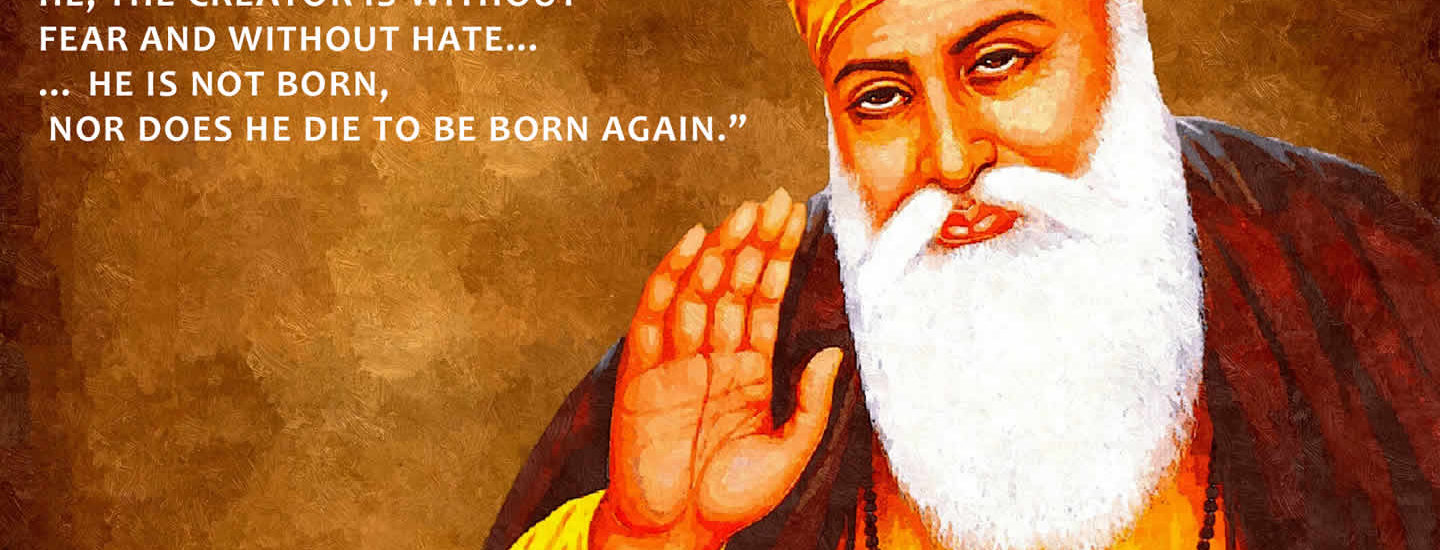He called that time of day ‘amrit vela’ – those moments at dawn when the air is as mellow as nectar. Guru Nanak wanted us to pray and sing in the praise of God during this time. And one of the most beautiful experiences in our land is to wake up to the sound of shabad kirtans floating out of a gurudwara.
It is as if the humane and tolerant spirit of Guru Nanak welcomes you to a new day, through the serene music of his poetry. On Kartik Purnima day we will once again celebrate his day of birth, let’s do it by trying to be the kind of human being he wanted us to be – generous, kind and tolerant.
If you take a close look at the life of Guru Nanak you discover that he lived what he preached. He really walked the talk with tolerance, simplicity and generosity. He wove his teachings into lyrical verse that he set to music and sang it all across the land. A true musician he also specified the raga in which each hymn had to be sang.
Guru Nanak said that there was one god and he was nirankar, that is without a form and we did not have to worship images to reach Him. The first verse of his morning prayer called Japji is called mool mantra and it begins,
“There is one god. He is the supreme truth.
He, the creator is without fear and without hate…
… He is not born, nor does He die to be born again.”
(Translated Khushwant Singh)
Nanak was born in 1469 CE in Punjab and by then Islam had been established in India. As a matter of fact he would witness the invasion of Babur and write with sorrow about the terrible consequences of war. He spent his time in meditation and then wandered across the country in the company of his friend Mardana, a Muslim rabab player. Guru Nanak was the founder of Sikhism.
Guru Nanak used poetry and music to spread the message of equality, tolerance and humanity. As he said after a revelation, “There is no Hindu, there is no Mussalman.” And in his philosophy he took the best of both religions. For him we were all equal and like other Bhakti poets he opposed the caste system and the power of the priesthood. For Nanak the teachings of both Bhakti and Sufi saints like Baba Farid and Kabir were very important.
Guru Nanak was also a social reformer who opposed the evils of society like intolerance and violence. He said, “Vand chakko” – share with others; “kirat karo” – make an honest living and “naam japna” – chant the holy name.
When Guru Nanak began a commune by the banks of the Ravi River, hundreds of his followers gathered to live there. He called the place Kartarpur. Here he began the system of langar and we still see it at gurudwaras where people of all castes and religion cook and eat together. In a gurudwara no one asks you for your background. Everyone is welcome as long as you come with a spirit of bhakti, devotion; and of sewa, service.
The poetry of Guru Nanak and of many of the nine gurus who followed him have been gathered in the Sikh sacred scriptures, the Guru Granth Sahib. Here we also find the poetry of other Bhakti and Sufi saints and all are revered with great fervour.
Like all the other Bhakti poets Guru Nanak spread his message through his exquisite poetry that can be sung in what he called “simran” – prayers. His hymns were for everyone just as the doors of a gurudwara are always open to the world. That is why he remains a saint for every one as they say,
“Guru Nanak shah faqir,
Hindu ka guru; Mussalman ka pir.”
On this Kartik Purnima day let us remember this gentle, humane and wise teacher and let his words guide us through the travails of live.


